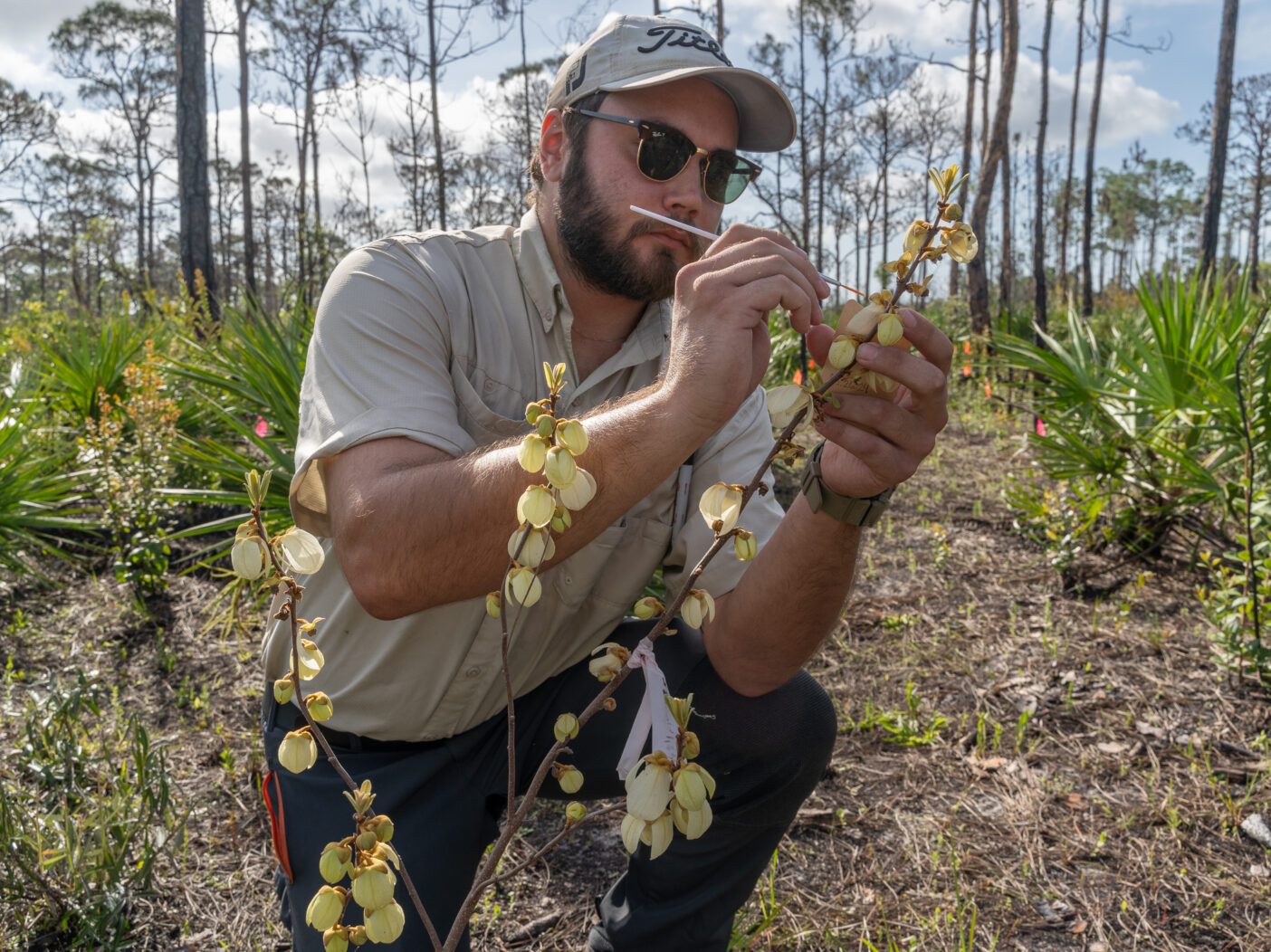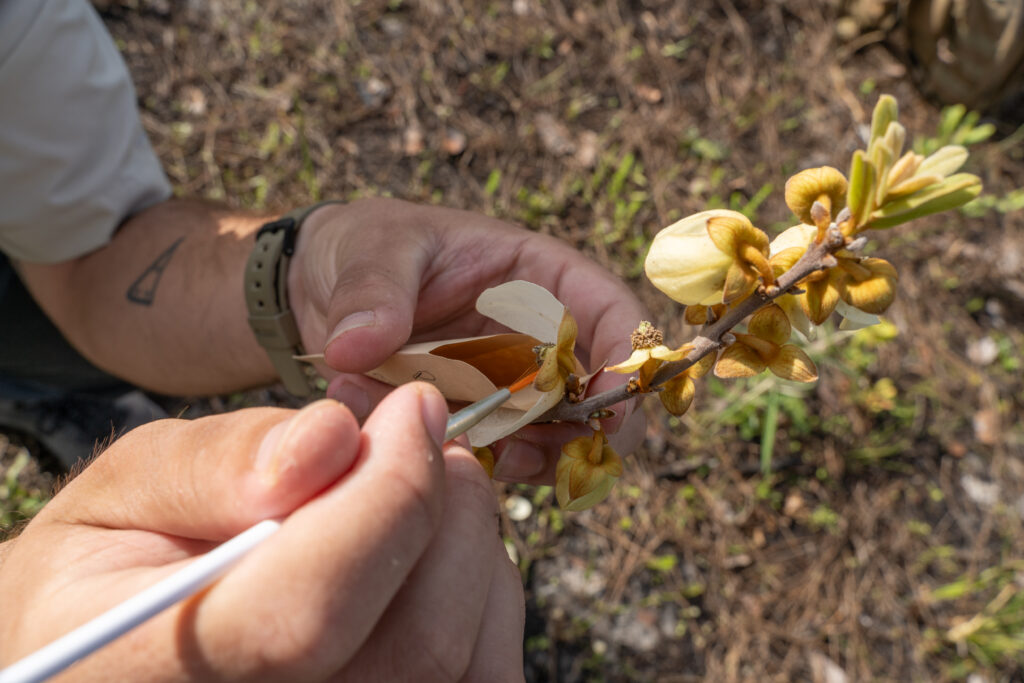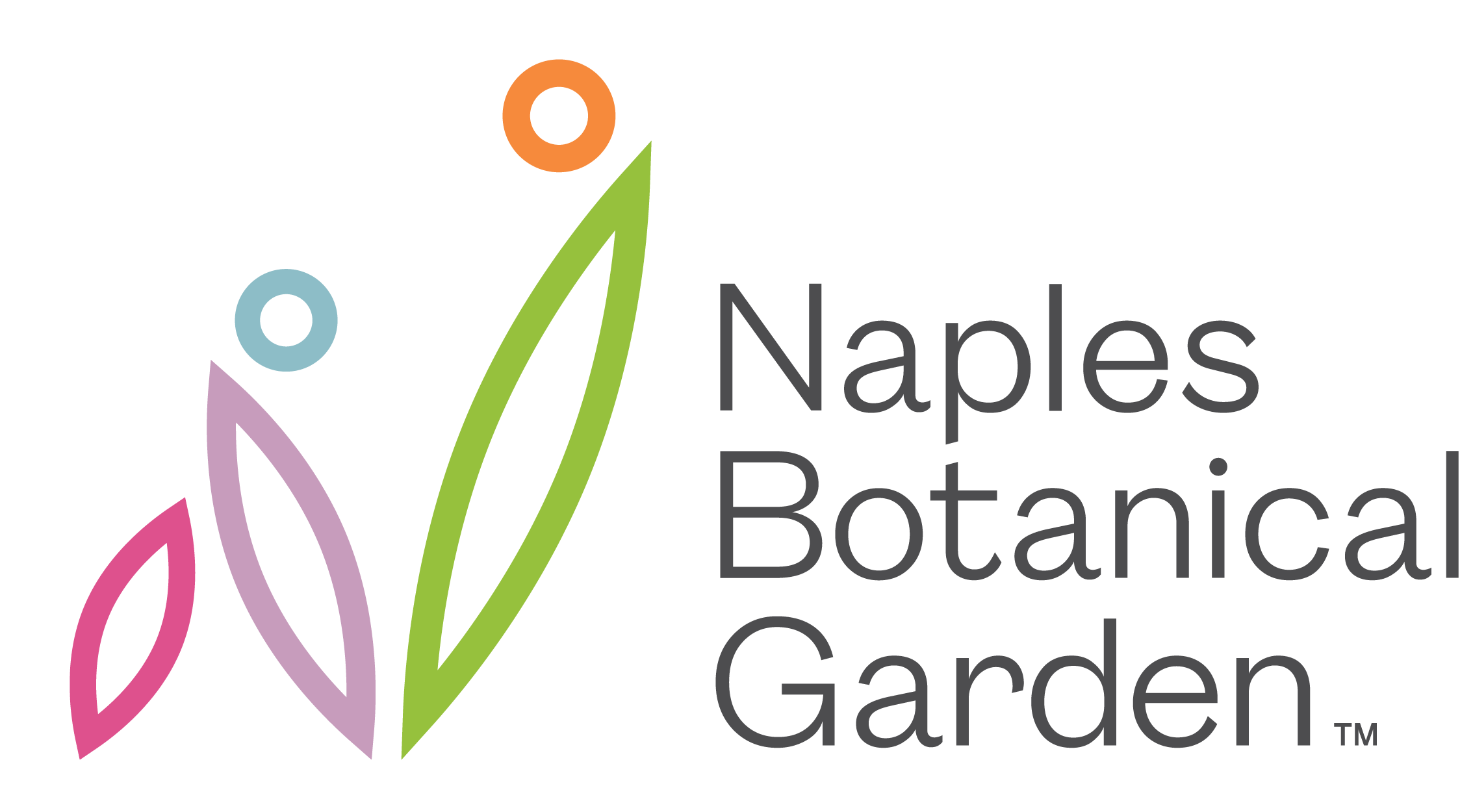
Following the Garden’s prescribed fires of 2023, netted pawpaw (Asimina reticulata), a native Florida plant that we’re tracking and tending as part of a North American agricultural initiative, is suddenly flourishing, producing thousands of delicate white flowers across the Garden’s Preserve. The abundance of flowers is also attracting this plant’s pollinator, a beetle known as the dark flower scarab, which has not been observed in the natural areas until this year. We’re concerned with netted pawpaw because it is a close wild relative of Asimina triloba, the fruit known simply as pawpaw.
In recent years, interest in pawpaw fruit has surged throughout the eastern United States, where the tree grows naturally in forest understories along riverbanks. The fruits are large and green and have a surprising tropical taste reminiscent of mango and banana. This edible pawpaw is not found in Southern Florida, but there are other closely related species, such as netted pawpaw, that grow as small shrubs throughout our state. Although not grown for their fruit, these species have the potential to be bred with the northern pawpaw to produce plants with advantageous qualities like drought resistance.

Because of netted pawpaw’s presumed crop-enhancing value, Garden conservationists set out to locate all the specimens they could find in the Smith Uplands Preserve. They hoped to gather fruit and seeds and start growing a collection of these shrubs in the nursery. But unlike the northern pawpaw, the netted pawpaw is a fire-adapted species—flames improve their ability to reproduce in the wild. Before the prescribed fires, none of the Preserve’s 158 netted pawpaw produced fruit naturally. The only fruit the team collected was the result of hand pollination.
The combination of increased flowering, pollinator presence, and natural fruit production are indicators of the ecological benefits of managing our natural areas with prescribed burning. With more fruit available, our team hopes to expand our collection for future research and long-term conservation.
This article first appears in the 2024 issue of Conserve, the Garden’s conservation magazine. Learn more about prescribed burns on our website.

About the Author
Dan Agis is the Garden’s Conservation Horticulture Manager.


